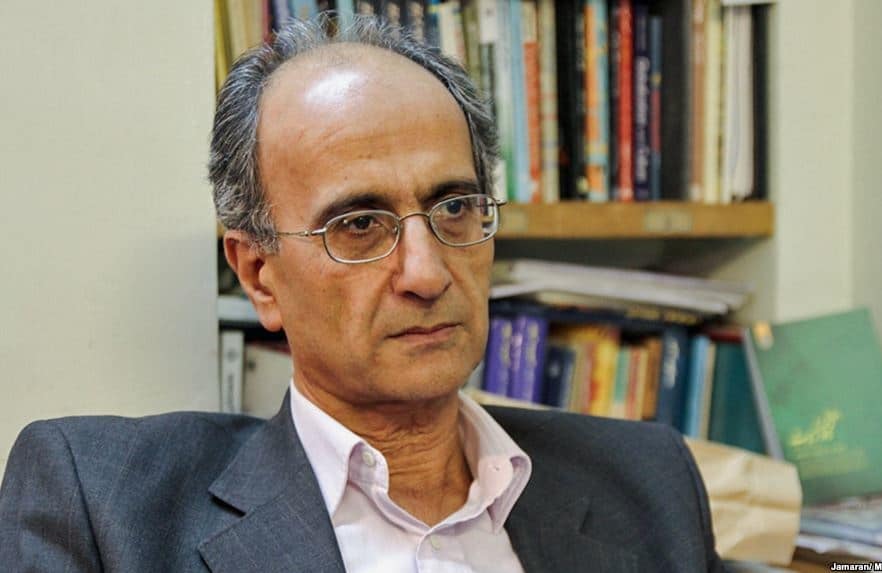Academic and environmental activist Kavous Seyed-Emami, who died under interrogation in Evin Prison in Tehran in early February 2018
LATEST
Five environmentalists, detained since January in Iran, now face the death penalty.
The charge against the quintet has been changed from “espionage” to “corruption on earth” after the Iranian Army sent a letter to the court, according to a former lawyer of the accused, citing the Tehran Prosecutor General.
Attorney Mohammad Hossein Aghasi claimed the army letter came via the Supreme National Security Council.
Eight environmentalists — Niloufar Bayani, Houman Jokar, Sepideh Kashani, Amir Hossein Khaleqi, Abdolreza Kouhpayeh, Taher Qadirian, Sam Rajabi, and Iranian-American dual citizen Morad Tahbaz — were seized by the Revolution Guards’ Intelligence Organization early this year.
A ninth detainee — the Iranian-Canadian founder of the Persian Wildlife Heritage Foundation, Professor Kavous Seyed-Emami — died in Evin Prison. Authorities maintain he committed suicide, but the environmentalist’s family believe he was killed
Aghasi, who represents three of the detained environmentalists, was recently rejected by the judiciary and replaced by two public defenders.
The new charges against the detained environmentalists have not been officially announced. Some Iranian websites list the five facing “corruption on earth” as Bayani, Jokar, Kashani, Qadirian, and Tahbaz.
No evidence has been publicly produced to support the claim of espionage. The Intelligence Ministry has questioned the detentions by the Revolutionary Guards.
On Monday, social media posts said another prominent environmentalist, Farshid Hakki, has been murdered. They claimed Hakki was stabbed to death near his house in Tehran and his body burnt.
Haki was a human rights activist, speaking out against child labor and campaigning for environmental causes.
Death Sentences Upheld for 2 Currency Traders
Iran’s Supreme Court has upheld death sentences imposed on two currency traders accused of “disrupting the economy”.
One defendant was named as Mohammad Esmail Ghasemi, dubbed the “Sultan of Coins” by local media after he was arrested while hoarding two tons of gold coins. The other condemned man was identified as Vahid Mazloumin.
Judiciary spokesman Gholamhossein Mohseni Ejei said the two traders were convicted of “spreading corruption on earth”.
Facing a 70% decline in the value of the rial this year, the Iranian judiciary — in a move endorsed by the Supreme Leader — has established special Revolutionary Courts for “economic crimes”. Long prison terms cannot be challenged, although death sentences may be appealed.
The appeal of a third defendant, Hamid Bagheri-Dermani, is still before the Supreme Court.


You want to know who or what is ““corruption on earth” today, take a look at islam or more specifically shiaism…other religions had revealed their ugly face centuries ago.